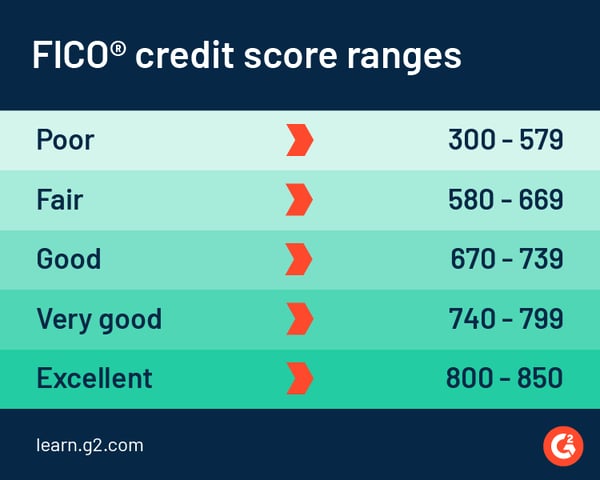
You would think there are no shortcuts to entrepreneurship, but there are.
One of them is buying a business instead of starting from scratch. If you can afford it, of course, and if you’re willing to take the risk.
But the risk is often perceived higher than it really is. In fact, there are a number of benefits to buying a business: existing cash flow, employees, customer base, and intellectual property. Due diligence is the best thing you can do to minimize risk and maximize upside.
The better you know where the company is currently and where it could be in the future, the better your investment. Knowing the margin makes all the difference. That’s what this article is about: current vs. future value. While we’re at it, we’re going to cover how to do due diligence, where to find businesses for sale, and what to keep in mind.
Without clearly knowing your motivation, it’s hard to pick the right business to purchase. There are de facto benefits of buying an existing business over starting a new one. Let’s explore what they are.
First, existing companies have the advantage of a proven business concept. The company you’re eyeing should make some money and have traction. You don’t invest high upfront costs with low returns that new companies often need to get started.
Second, the time to find and hire good employees also falls off the table – at least most of the time. That’s also the reason why it’s often easier to get funding for M&A (mergers & acquisitions) than if you were starting a new business.
Third, taking over an existing company is a way to acquire IP (intellectual property) that wasn’t accessible prior. Buying businesses for patents and technology is especially common for enterprise companies like Amazon, Google, Facebook, Apple, & co. They’re the opposite of an “acquihire”, which is buying a company for its talents.
Will all benefits in mind, there is always a risk of hidden problems. It’s nearly impossible to rule that out. The better your due diligence, the closer that risk gets to zero.
To buy a business, you need one thing more than others: money. Without sufficient funds, you simply can’t purchase. There are four fundamental options to get the money.
While public companies often play a part in cash and stock options (sometimes to 100%), SMB M&A transacts in cash. That makes it easier for big enterprises to make strategic acquisitions.
Banks require you to put down 20-25% of the loan upfront (SBAs take 10%). You need to factor that into the purchase price because if you don’t have much cash, it can be difficult to get the loan. Optimally, you play through several scenarios before even picking a company to acquire so you know what your limit is.

To increase your chances of getting a loan – one with hopefully minimum interest – make sure your credit score is at least “good," and if you’ve gotten a loan in the past, proving your track record to increase the likelihood of approval is a good idea. Banks love to see a strong track record that proves good choices.
In a nutshell, these are the steps to buying a business:
| Know your budget |
| Find the right business |
| Do your due diligence |
| Negotiate the price |
| Secure funding |
| Sign the contract |
| Handle the transition or integration |
The investment banking discipline that deals with companies buying companies is called M&A (mergers and acquisitions) and yields some of the highest returns.
Finding businesses for sale might seem elusive, but there are three distinct ways to go about it.
|
Business brokers typically take 5-12% of the deal value, but can help you with due diligence, negotiations, and paperwork. However, be aware that they usually represent the seller, so be careful with what you disclose.
Spend a lot of time on finding the right business. Your decision will make or break the whole deal and waste precious time. It’s painful to put hours on end into due diligence just to find nothing behind the facade. Weigh your options carefully and consider talking to several owners at the same time to get a feel for the market.
You can buy franchises, independent companies, startups, public companies. Within independent companies, you can purchase the whole bandwidth of SMBs (small-medium businesses), mid-market, and enterprise companies.
The best way to know whether a business is for sale is to either ask the owner directly or look at marketplace listings.
Due diligence is the most important part of business acquisitions because that’s where you find out whether the opportunity is hot or not. Due diligence means nothing else but looking at the numbers and assets of a company to determine its value. The process often demands to sign an NDA (non-disclosure agreement).
There are many assessments to make, and they depend greatly on the type of business you’re buying. Here are the seven most important ones.
Without a doubt, financial documents are key to buying a business.
|
And of course, a reliable customer base.
|
Proof of sales will help expedite the process greatly.
|
A business cannot function, let alone thrive, without employees
|
Any smart business has a marketing team in hand.
|
All about the legal paperwork, that's business ownership.
|
Location! Location! Location! It truly makes all the difference.
|
The more thorough your due diligence, the better. Obviously, the depth depends on whether you buy a small business, startup, or an enterprise.
Besides this checklist, it’s important to ask broad questions like “Why is the business for sale?”. Knowing whether the reason is personal or business-related is important. Retirement is a good reason; low sales, however, are a red flag.
The selling price plays a major role because it’s based on what you can get, how much cash you can invest, and the outcome of your due diligence. It prepares you for negotiations with the business owner.
There is no perfect formula for business valuations, but there are three common methods.
What ROI (return on investment) can you expect from buying a business? That depends on what type of business you buy. Small-medium businesses should return 15-30% of your cash investment per year (leaving out depreciation), whereas large businesses might yield 5-10%.
Note that there are independent valuation services that look at assets, earnings, and market share to help you figure out what a company is worth. When it’s your first time purchasing a business, you should seriously consider such a service.
| Related: Learn more about business valuation and which method is right for your company! |
Before signing the sales agreement or Bill of Sale that contains the price and what you’re buying, you should have signed a non-compete agreement with the owner. Once all of that is sorted out and signed, there are a couple of things you should take care of besides opening a bottle of champagne.
First, plan the transition or integration. In fact, you should have had a roadmap or business plan before signing the contract with clear timings, responsibilities, and milestones. Outline whether to keep all employees or only some, whether to fully integrate the business or keep it independent, and when to let your staff know.
Second, keep a tight communication loop with the seller. Don’t just sign the deal and go silent for three months, especially when you want to integrate the business or keep employees of the on you buy.
Now that you know how to find, assess, and buy a business, let’s close with a couple of tips.
When you consider to take over another business, be sure you’re passionate about it. Starting a business can grow out of passion. So, you should be curious and interested at the very least – and certainly don’t buy one that’s not within your expertise without consulting help.
You get the highest ROI from buying a business when you can contribute more value than the owner. More value could be more money to build out a promising product, better business relationships, more marketing experience, or an existing customer base.
Don’t settle for the first price bid. It’s common negotiation knowledge that the first bid is almost always too high from a seller and too low from a buyer perspective. Go through a couple of rounds and see what arguments come up. It might be telling whether the business is healthy or not if the seller quickly settles for a low price.
Keep the prior business owner around for the transition period. It’s important to quickly build trust and credibility with the new staff and you can learn something from the prior owner about running the business.
And definitely don’t save money on bankers, accountants, attorneys. Good advice is worth the money.
Curious to learn more business ownership? Take a dive into franchising and see the next steps to making your dream become a reality!
Kevin Indig is an advisor to some of the world’s fastest-growing startups and has defined Organic Growth strategies for companies like Ramp, Reddit, Bounce, Dropbox, Hims, Nextdoor, and Snapchat. Kevin led SEO and Growth at the world’s leading e-commerce platform Shopify, the #1 marketplace for software G2 and the #1 developer company Atlassian. Once a week, he sends The Growth Memo to 20k+ subscribers and regularly speaks at conferences around the world.
Some people can have a foolproof business idea that will make millions, but can’t put a name...
 by Mary Clare Novak
by Mary Clare Novak
When you choose to swap the 9 to 5 and go full freelance-mode, it might not occur to you that...
 by Grace Pinegar
by Grace Pinegar
It’s not always easy to remember someone’s name. It’s even more difficult to remember what...
 by Daniella Alscher
by Daniella Alscher
Some people can have a foolproof business idea that will make millions, but can’t put a name...
 by Mary Clare Novak
by Mary Clare Novak
When you choose to swap the 9 to 5 and go full freelance-mode, it might not occur to you that...
 by Grace Pinegar
by Grace Pinegar


